'All they need is a listening ear': These 3 volunteers counsel inmates, help them navigate life after prison
As volunteer prison counsellors, Laila Abu Hassan, Clara Yap and Balbir Kaur provide hope and support for inmates and ex-offenders to get back on their feet. For their years-long service, they won the Throughcare Hero Award and in this story, they share their journeys with CNA Women.
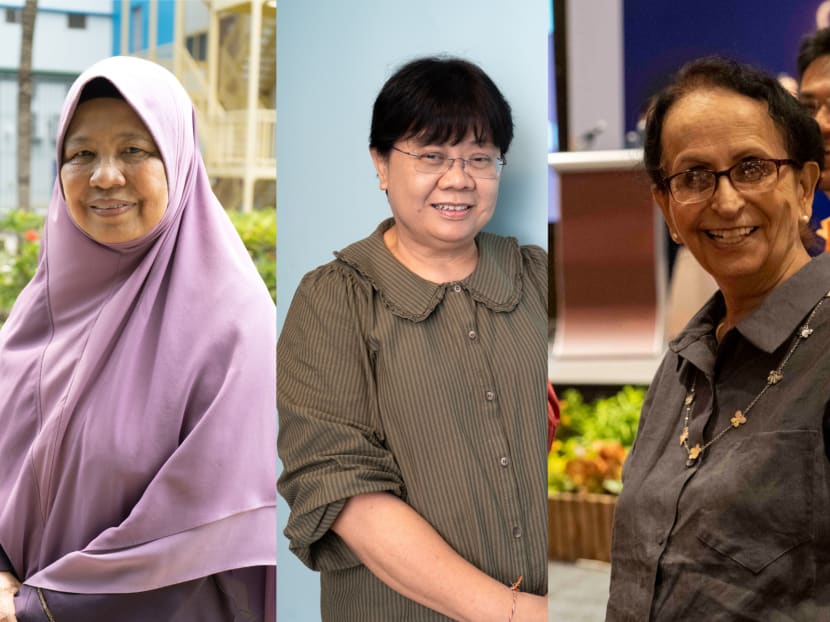
Laila Abu Hassan, Clara Yap and Balbir Kaur are passionate volunteer counsellors who help prison inmates with their rehabilitation and reintegration into society. (Photo: Singapore Prison Service)

This audio is generated by an AI tool.
Laila Abu Hassan, Clara Yap, and Balbir Kaur are volunteer prison counsellors who have been supporting Changi Prison inmates and ex-offenders. Laila has been a volunteer for over 20 years, while Yap and Kaur have served for over 25 and 15 years respectively.
For their service, each woman was presented with the Throughcare Hero Award by the Singapore Prison Service last year. The awards laud volunteers for their commitment to accompanying inmates and their families during their jail time and beyond.
The women speak to CNA Women about their work, what they learn working with inmates and ex-offenders, and what keeps them going.
LAILA ABU HASSAN: MAKING DEEP CONNECTIONS WITH WOMEN INMATES
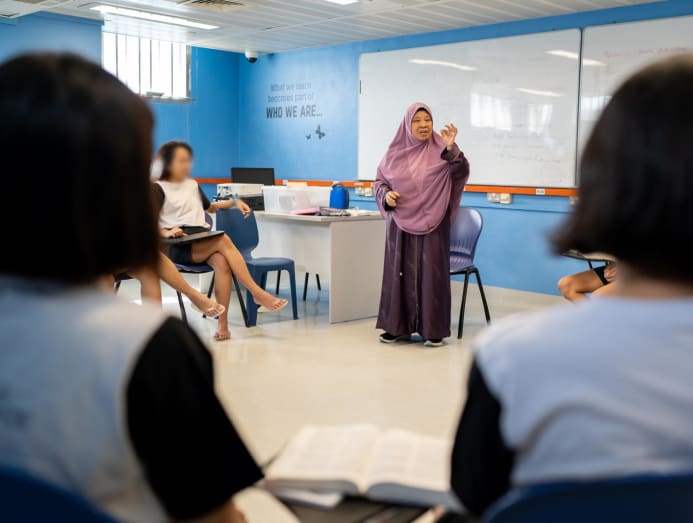
For over 20 years, Laila Abu Hassan has travelled every week from her home in Bukit Panjang across Singapore to Changi Prison. The 66-year-old makes the long commute to counsel the Muslim inmates at Changi Women’s Prison.
Laila is an Islamic religious teacher who decided, when she was in her 40s, that she wanted to contribute to areas that needed more attention.
“I was inspired by my husband, who’s also a religious teacher,” Laila said. “He volunteered in the prison for years before I did and told me not to judge inmates, but be open to people from different backgrounds.”
She was still hesitant but in 2003, joined her husband as a volunteer at Muslim Counselling Services at the Singapore Anti-Narcotics Association (MCSSANA).
The organisation provides counselling to prison inmates through its religious programmes, including its latest initiative: Family and Inmates Throughcare Assistance Haven (FITRAH).
As a FITRAH volunteer, Laila engages with inmates individually and in groups, teaching them about Islam while listening to their concerns and challenges.
She makes it a point to make her sessions interactive and encourages the women to ask questions, no matter how “silly” they may think they are. This helps them to build up their confidence and self-esteem, Laila said.
She has also counselled women given the death penalty. These “heavy” cases remind her of the importance of being there for all kinds of inmates, Laila said.
“With the limited time they have left, I want them to know that they are not alone,” she said. “I focus on making sure that they are at peace, that they forgive themselves, and that there are still opportunities to be better even in prison, such as being there for their fellow inmates.”
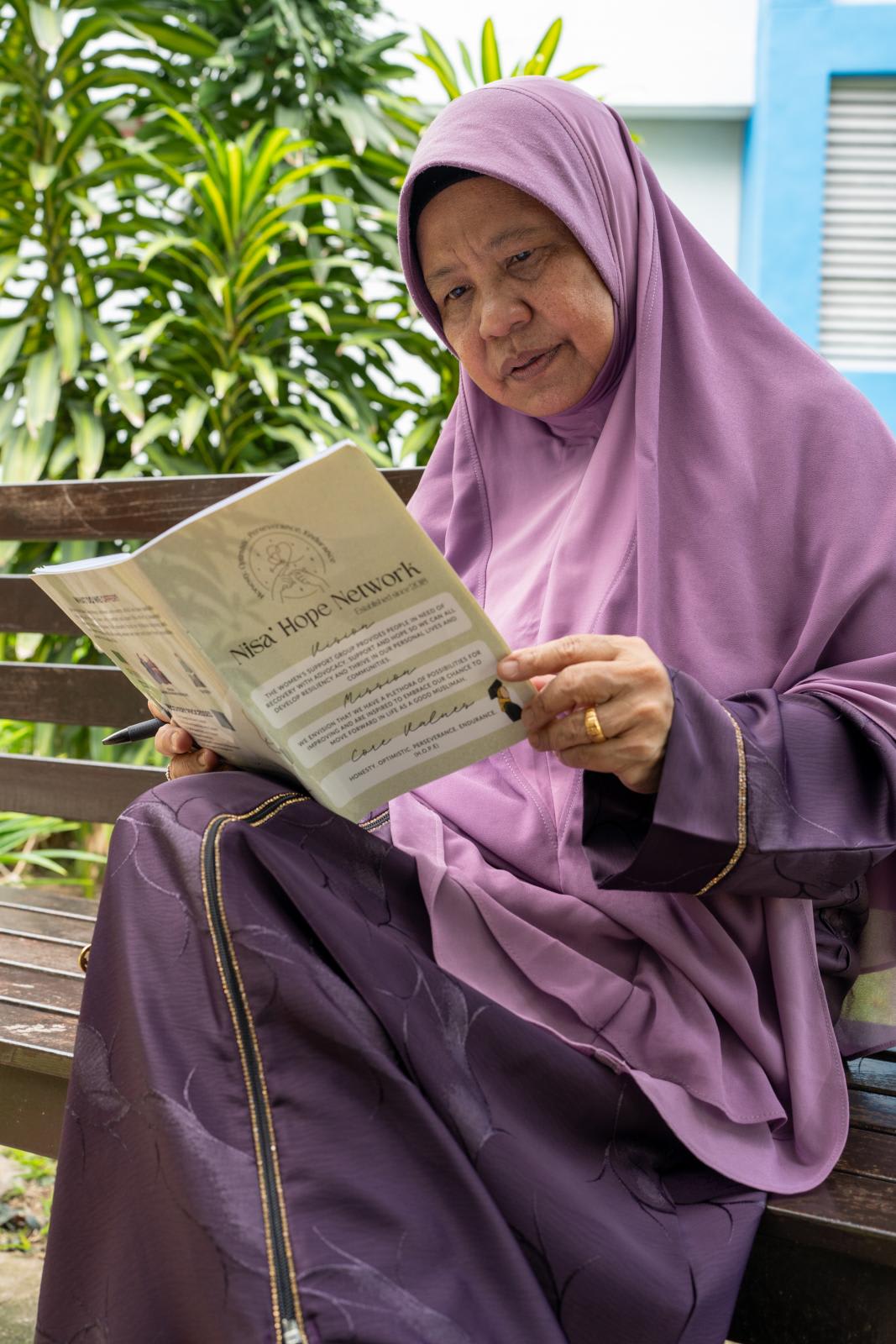
She has built up such deep connections with her charges that she has founded communities for them after their release, one of which was Nisa’ Hope Network in 2018.
“Nisa’ means ‘women’ in Arabic and the group is meant for female ex-offenders to work towards becoming a better person together,” Laila explained.
“It’s okay even if they relapse many times or make the same mistake, as long as they get back up and want to improve, they are welcome in the network,” she added.
With the limited time they have left, I want them to know that they are not alone.
At these gatherings, ex-offenders share their stories and provide mutual support for one another. She also facilitates free religious classes and workshops so that the women can learn new skills to empower themselves and increase their chances of employment.
Laila said being a volunteer counsellor has made her more empathetic, understanding and patient.
“I used to think everyone in prison is bad, but most of them are just people caught in bad circumstances and may have made bad decisions,” she said. “This is something all of us humans do.”
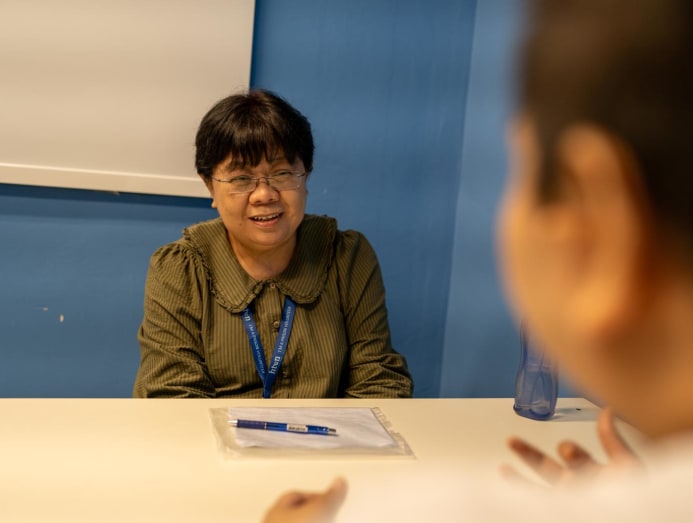
Clara Yap has counselled both male and female inmates and ex-offenders under the Singapore After-Care Association (SACA) for more than 25 years. Established in 1956, SACA is a charity that supports prison inmates, ex-offenders and their families towards rehabilitation.
“The way I started my journey with SACA was almost by fate,” said the 60-year-old, who works as a school counsellor.
In her early 30s, Yap volunteered for an organisation that worked with the elderly and people from low-income backgrounds. Through the beneficiaries, she found out about SACA and the support they provide to prison inmates.
“I got curious and I wanted to know more,” she said. “One thing led to another and before I realised it, I was registered to train to become a prison counsellor.”
Training sessions were held three to four times a week in Changi Prison and she travelled from her home in the west each time. She now visits the prison once a fortnight as a SACA volunteer.
“It’s not always easy, but it is incredibly fulfilling,” Yap said. “And when I had to start counselling, all of the travel time felt like such small inconveniences compared to the challenges the inmates faced in their lives.”
While being a school counsellor and prison counsellor may seem very different, she highlighted that the principles remain largely the same.
“In the end, all they need is a listening ear and the belief that they have a second chance, and I want to give them that, no matter if they’re a student or inmate.”
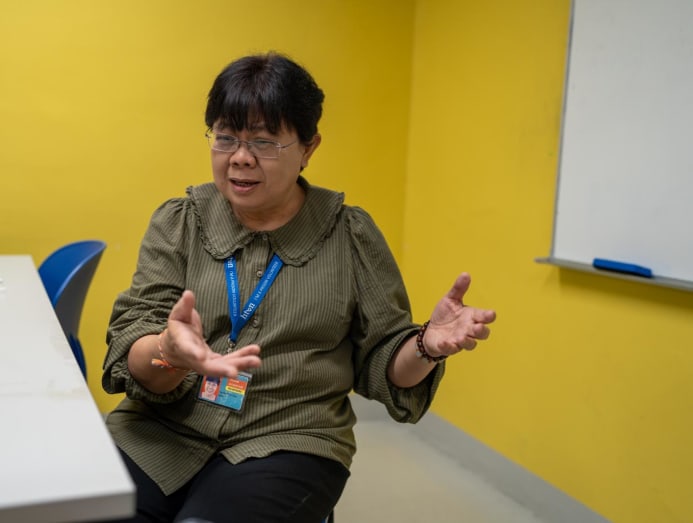
Under SACA, Yap facilitates programmes that help inmates gain useful skills that can prepare them for re-employment after their release.
Some of these include communication, facilitation, problem-solving, and making difficult decisions. This is achieved through storytelling, role-playing, or arts and crafts.
“We’d bring huge picture books and inmates would choose any topic they’d like and we’d guide them on how to do presentations,” Yap said. “It’s great because we see their confidence and communication skills improve a lot.”
During her counselling sessions, she focuses on developing the inmates’ self-forgiveness and building on their strengths.
In the end, all they need is a listening ear and the belief that they have a second chance.
“Some people may think that inmates never feel guilty, but most of the ones I meet are filled with so much guilt it can destroy them,” she said. “I always tell them they need to forgive themselves, despite the mistakes they made, and work on being better for themselves and their loved ones.”
Yap said it was heartwarming to witness the inmates making positive changes in their lives. Some even keep in touch with her after their release although not all do.
“Some ex-offenders don’t want to be reminded of their time in prison, and I may be a reminder of that, so I don’t take it personally,” she said. “As long as they’re better, I’m happy for them.”
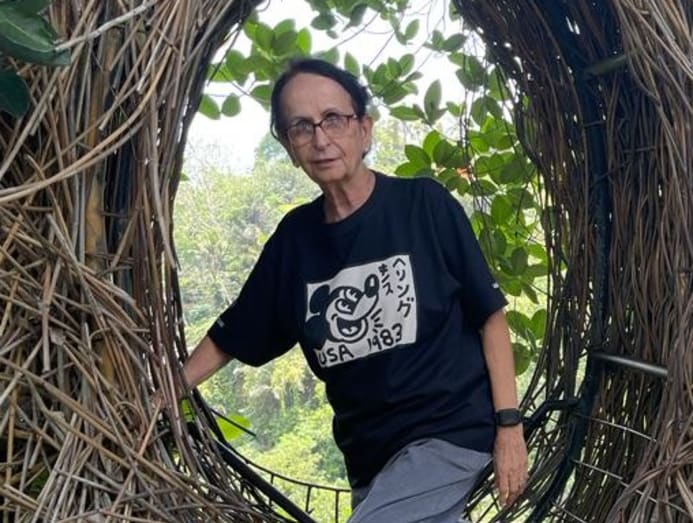
To Balbir Kaur, volunteering is simply what her family does.
“I grew up alongside my six siblings watching my father spend all his Sundays helping others at the temple,” the 72-year-old said. “Even though we had our struggles as a family, my father wouldn’t hesitate to spend time and energy on others and always remind me that helping others will go a long way.”
Kaur has tried to embody that in her life. In her mid-20s, after she got married, she taught her neighbours’ kids primary Mathematics, English and Science for free. And like her father, she too would spend time at the Sikh temple giving food and aid to underprivileged families.
In her late 40s and early 50s, Kaur was moved to take up a diploma in counselling psychology from a private institution as a means to develop her skills in listening to and supporting others.
Juggling her full-time job as an accountant, the mother of two would study for her diploma as well as fulfil attachments at the Institute of Mental Health as part of the curriculum. This allowed her to gain experience in counselling and interacting with people with mental health issues such as addiction.
In her mid-50s, she became drawn to volunteering with inmates and ex-offenders.
After going through the relevant courses at the Singapore Anti-Narcotics Association (SANA), she started volunteering with both male and female inmates and ex-offenders as part of the Sikh Welfare Counsel (SIWEC).
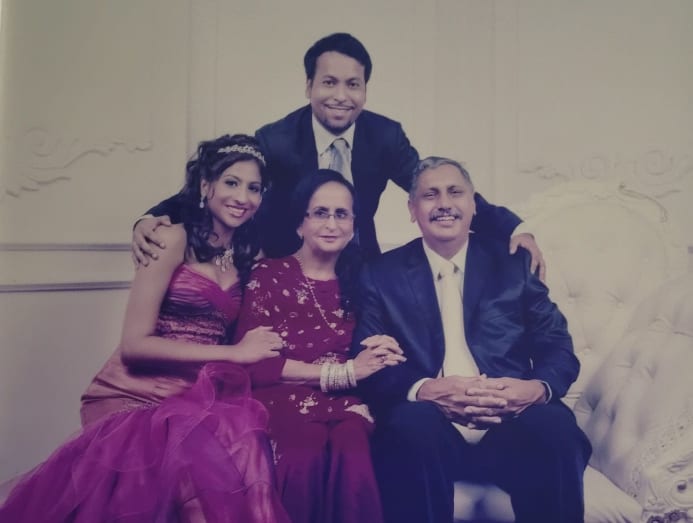
The experience of helping inmates and ex-offenders get back on their feet and re-integrate into society financially and socially has been “fulfilling and eye-opening”, Kaur said.
It also reinforced her principle of not judging others.
“The first time I visited the prison, I must admit, I was nervous,” she said. But after meeting the inmates, she felt at ease.
“They were so polite and respectful,” she said. “When I listened to their stories, I forgot about my own discomfort about being in the prison for a short while. I reminded myself to be empathetic and not to be scared for no reason.”
Kaur has become friends with various ex-offenders who turned to her for advice about their relationships and careers.
“I’m like an aunty to them,” she said. “They come to me with their problems. I always help them even if I have to sometimes scold them with affection.”
“People would ask me if I’m intimidated because I’m a small old lady and I’ve to be surrounded by these men and their tattoos and so-called mean faces,” she mused. “But those are just their appearance. They are very vulnerable and open to sharing their problems to become better people.”
“Most of the rest of society has rejected these men, but I don’t want to. I love helping them with their family life, their jobs, their relationships – and I want to keep doing so until I cannot anymore.”
CNA Women is a section on CNA Lifestyle that seeks to inform, empower and inspire the modern woman. If you have women-related news, issues and ideas to share with us, email CNAWomen [at] mediacorp.com.sg (CNAWomen[at]mediacorp[dot]com[dot]sg).












